Frontpage News (3259)
 The Nigerian Medical Association in Ekiti, has criticised the Osun State Governor, Ogbeni Rauf Aregbesola, over the sack of some doctors in the state civil service.
The Nigerian Medical Association in Ekiti, has criticised the Osun State Governor, Ogbeni Rauf Aregbesola, over the sack of some doctors in the state civil service.
The NMA urged its members in Osun to discontinue any negotiation plans with the governor until the action, it described as ‘draconian and obnoxious’ , is reversed.
The association also called on Governor Ayodele Fayose to implement the revised Consolidated Medical Salary Scale to all doctors across board as being enjoyed in Ondo, Gombe and Ogun States.
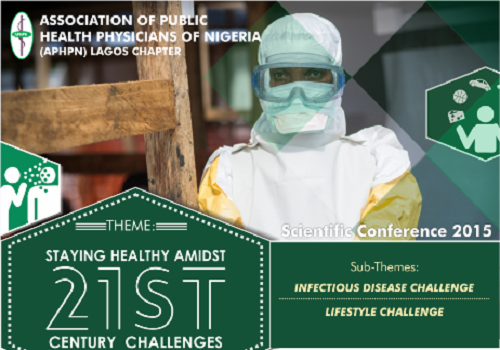 A meeting of the Association of Public Health Physicians of Nigeria (APHPN) is slated for Abuja from March 14 to 18 to deliberate on universal health coverage and public health issues affecting Nigerians.
A meeting of the Association of Public Health Physicians of Nigeria (APHPN) is slated for Abuja from March 14 to 18 to deliberate on universal health coverage and public health issues affecting Nigerians.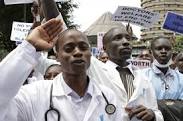 Ogun State chapter of National Association of Government General Medical and Dental Practitioners onMonday commenced a one-week warning strike over its requests from the state government.
Ogun State chapter of National Association of Government General Medical and Dental Practitioners onMonday commenced a one-week warning strike over its requests from the state government.
The association disclosed in a communique issued at the end of the emergency general meeting of the association and signed by its chairman and secretary, Dr. Oladunni Adetola and Dr. Adetonwa Festus respectively.
The communique read,"After series of letters to the Executive Governor of Ogun State, Senator Ibikunle Amosun, both official and personal,as well as sensitization of all other stakeholders, the government has not seen any reason to attend to any of the aforementioned issues ravaging the health sectors.
 The World Health Organisation (WHO) has said the first tests of Zika vaccines on humans are expected to start only at the end of the year.
The World Health Organisation (WHO) has said the first tests of Zika vaccines on humans are expected to start only at the end of the year.
The health agency noted that it would therefore not be able to help fight the current outbreak in Brazil.
WHO’s Chief Innovation Officer, Marie-Paule Kieny, said the agency convened international experts in Geneva to discuss strategies to develop the right vaccine and diagnostic tools, as well as methods to fight mosquitoes.
 Bauchi—No fewer than three persons have died from a fresh outbreak of Lassa Fever, while 10 members of a family are currently infected with the virus in Bauchi State.
Bauchi—No fewer than three persons have died from a fresh outbreak of Lassa Fever, while 10 members of a family are currently infected with the virus in Bauchi State.
The Executive Chairman Bauchi State Primary Health Care Development Agency, Ibrahim Gamawa, who said this yesterday in Bauchi, added that the 10 new cases were recorded in a single family at Jaye village in Tafawa Balewa Local Government Area of the state.
He said the outbreak started after a 78-year-old man died of the disease without seeking professional medical treatment.
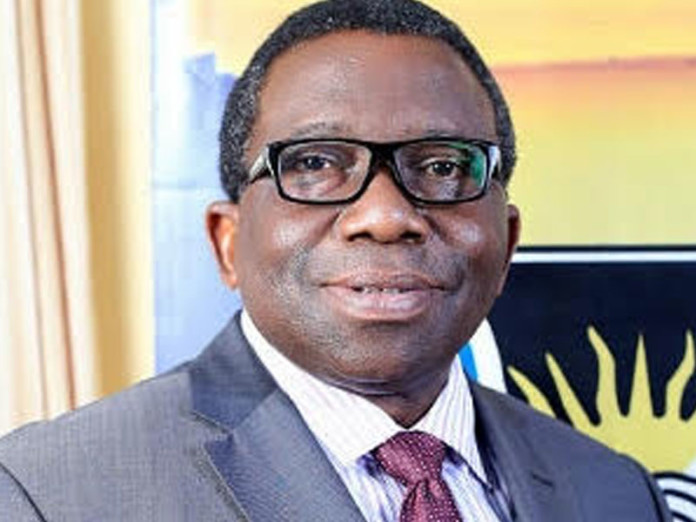 Stakeholders in the Health Sector have converged in the ancient city of Sokoto for the 58th National Council on Health (NCH). The Permanent Secretary Federal Ministry of Health, Dr. Amina Shamaki said that the purpose of NCH meeting was to discuss issues on health policy making nationwide.
Stakeholders in the Health Sector have converged in the ancient city of Sokoto for the 58th National Council on Health (NCH). The Permanent Secretary Federal Ministry of Health, Dr. Amina Shamaki said that the purpose of NCH meeting was to discuss issues on health policy making nationwide.
According to her, “the theme of the conference is Universal Health Coverage, an agenda for change. We are going to discuss on how to ensure availability of healthcare services at the Primary level, where majority of Nigerians resides”
“If we have functional healthcare centres at the grass root level, reporting system would be very effective and any outbreak of disease would be nip in the bud, there would be no room for epidemics” she added
 Nigerian Medical Association, NMA, yesterday blamed industrial disharmony and other crises in the nation’s health sector on judiciary, health ministry, hospitals’ managements, and health workers in the country.
Nigerian Medical Association, NMA, yesterday blamed industrial disharmony and other crises in the nation’s health sector on judiciary, health ministry, hospitals’ managements, and health workers in the country. Experts have warned that the Zika virus was just one of a growing number of continent-jumping diseases carried by mosquitoes threatening swathes of humanity. Anna-Bella Failloux,
Experts have warned that the Zika virus was just one of a growing number of continent-jumping diseases carried by mosquitoes threatening swathes of humanity. Anna-Bella Failloux, No fewer than 30 children have so far died in Imo State as a result of fresh outbreak of diarrhea which is said to be relatively common in the 637 autonomous communities in the state due to absence of potable water.
No fewer than 30 children have so far died in Imo State as a result of fresh outbreak of diarrhea which is said to be relatively common in the 637 autonomous communities in the state due to absence of potable water.
The development it was gathered compel the residents to resort to the use of water from streams and uncertified boreholes for consumption.
Speaking when she received a delegation from the Nigeria Agip Oil Company Limited, the commissioner for Health, Ngozi Njoku, said that the death toll from the outbreak of the deadly disease had risen to 30 in the last few weeks, while several others affected by the scourge were receiving treatment in various hospitals in the state.
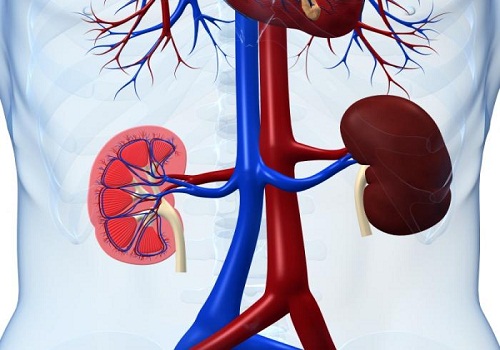 Lesss than 2,000 have access to dialysis, a Ratio of 1 Nephrologist to 1m persons ON this year’s World Kidney Day, experts have raised alarm over rising incidences of kidney disease among Nigerians, saying,
Lesss than 2,000 have access to dialysis, a Ratio of 1 Nephrologist to 1m persons ON this year’s World Kidney Day, experts have raised alarm over rising incidences of kidney disease among Nigerians, saying,More...
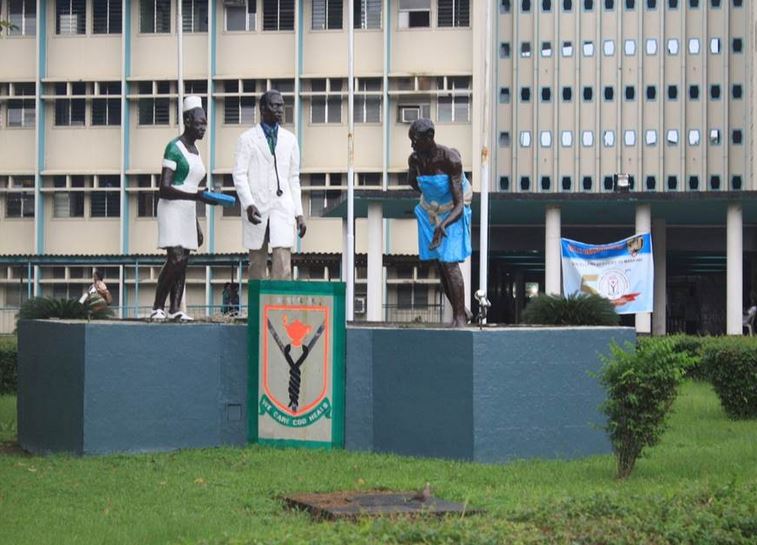 The Association of Resident Doctors of the Lagos University Teaching Hospital (LUTH), Idi-Araba, Lagos, last weekend, embarked on an indefinite strike action to press home their demands.
The Association of Resident Doctors of the Lagos University Teaching Hospital (LUTH), Idi-Araba, Lagos, last weekend, embarked on an indefinite strike action to press home their demands.  Over the weekend, matriculation ceremony was held for 234 pioneering students of Nigeria’s first and Africa’s second medical university, the University of Medical Sciences Ondo state.
Over the weekend, matriculation ceremony was held for 234 pioneering students of Nigeria’s first and Africa’s second medical university, the University of Medical Sciences Ondo state.
The ceremony also marked the inauguration of the institution. Speaking at the event, Olusegun Mimiko, governor of Ondo state, said the establishment of the university was the state’s strategic response to reverse the brain drain in Nigeria’s medical industry.
Vanguard reported that the governor said the institution would also create an institutional base for the production of proficient health care manpower to service the nation.
Nigerian health policy makers gather in Sokoto for the 58th National Council on Health
 Once every year, the Ministers of Health, leaders of all the health parastatals, and the commissioners of health and their teams gather to agree and harmonise health policy for the Federal Republic. It is the highest policy making body in the health sector for the country.
Once every year, the Ministers of Health, leaders of all the health parastatals, and the commissioners of health and their teams gather to agree and harmonise health policy for the Federal Republic. It is the highest policy making body in the health sector for the country.
So between the 7th and 11th of March 2016, public health sector leaders congregated in Sokoto, (the State of the Caliphate as it is called), to deliberate on the progress in the Nigerian health sector and to chart a way forward.
It was the first National Council of Health meeting for the Minister of Health, Professor Isaac Adewole, his Minister of State Dr. Osagie Ehanire, the Permanent Secretary Dr. Amina Shamaki and most of the Commissioners of Health (this is not counting the emergency meeting called in the wake of the Lassa Fever outbreak late in 2015).
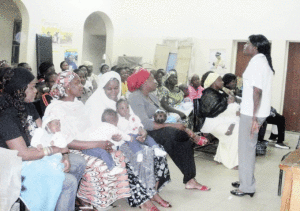 Healthcare providers in Nigeria have been urged to be friendly to patients and clients, especially the youths. The call was made at the 7-day training of health workers in all the four Primary Healthcares, (PHC) workers in Apapa Iganmu Council in Ijora, Lagos State, last week organised by Action Health Incorporated in collaboration with Action for Change.
Healthcare providers in Nigeria have been urged to be friendly to patients and clients, especially the youths. The call was made at the 7-day training of health workers in all the four Primary Healthcares, (PHC) workers in Apapa Iganmu Council in Ijora, Lagos State, last week organised by Action Health Incorporated in collaboration with Action for Change.
According to the programme officer, Francesca Bola Akalede, the training was borne out of the recognition of the various issues that young people face in the region. “Most of the time they don’t have a place to go and we felt they needed information and services such as this,” she said.
Mrs. Akalede said the training of healthcare providers on youth service friendly provision at Olojowon Primary Health Care was part of a project on youth-friendly services at Olojowon PHC.






